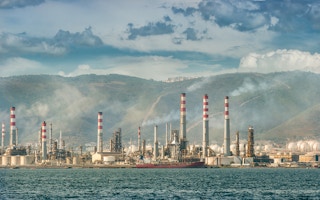The G20 countries spend almost four times as much to prop up fossil fuel production as they do to subsidise renewable energy, calling into question their commitment to halting climate change, a think tank said on Thursday.
The G20 spent an average $78 billion on national subsidies delivered through direct spending and tax breaks in 2013 and 2014, according to a report from the Overseas Development Institute (ODI) on Thursday.
A further $286 billion was invested in fossil fuel production by G20 state-owned enterprises. Related public finance was estimated to average a further $88 billion a year.
Meanwhile, renewable energy subsidies in 2013 were estimated at $121 billion by the International Energy Agency (IEA).
Turkey, which will host leaders of the G20 this weekend, paid national subsidies for fossil fuel production of at least $627 million annually in 2013 and 2014, ODI said in its report. The figure may be higher because of missing data, it said.
In addition, Turkish state-owned enterprises invested $1 billion in fossil fuel production domestically, part of a strategy of a rapid expansion of coal-fired generation and coal production.
“It is tantamount to G20 governments allowing fossil fuel producers to undermine national climate commitments, while paying them for the privilege,” ODI said.
Leaders of the G20 will meet in Turkey on Nov 15-16, where climate change will be on the agenda. France will host talks among almost 200 nations from Nov 30-Dec. 11 to agree a plan to limit climate change beyond 2030.
Last year, during Australia’s presidency, leaders from the G20 group of nations agreed to tackle climate change despite the host country’s insistence that it was not an economic issue.
This year, NATO-member Turkey wants world leaders to discuss the conflicts in Syria and Iraq that have led it to take in more than 2 million refugees.
Oxfam’s Deputy Advocacy and Campaigns Director, Steve Price-Thomas, said leaders of developed countries were also falling short on their promises to help poor countries adapt to the impacts of climate change.
“These same governments are spending billions propping up the coal and oil industry. They must stop paying the polluters and instead ensure that poor communities receive the money they need to cope with a changing climate,” he said.










